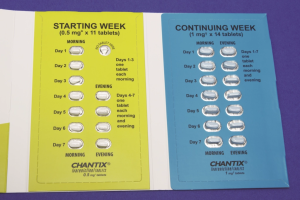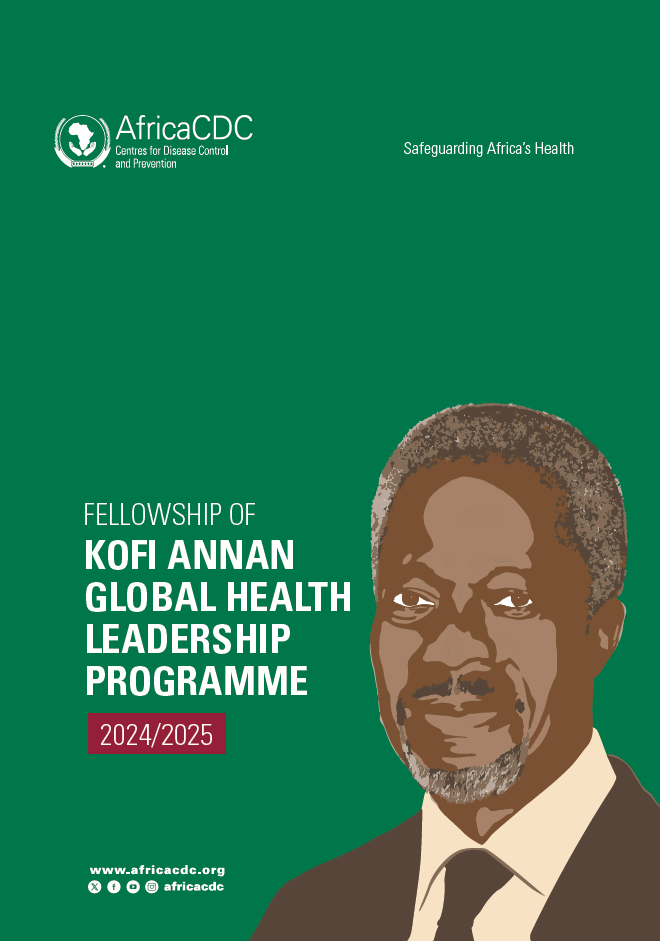Global health leadership has never been more crucial in today’s interconnected world, especially in light of the numerous challenges that threaten our public health infrastructure. Prominent figures like Atul Gawande have spotlighted the impact of US global health initiatives and the devastating effects of recent USAID funding cuts, which have left a significant void in international health programs. As Gawande noted, the dismantling of U.S. health efforts has not only negatively affected millions globally but also jeopardized the country’s role as a leader in health advancements. With a historical track record of improving health outcomes, the need for robust leadership in global health is essential now more than ever to restore and innovate public health systems. As communities and nations grapple with health crises, the demand for effective and compassionate health leadership becomes paramount to navigating future challenges and safeguarding health equity.
The concept of health stewardship, synonymous with global health leadership, encompasses a vital role in coordinating international health efforts and enhancing public health standards worldwide. As advocates like Atul Gawande have illuminated, the decline in support for strategic health programs and initiatives has profound implications on global stability and well-being. This deterioration of support affects a wide range of health concerns, including maternal and child health outcomes, infectious disease management, and overall health equity. The consequences of inadequate health leadership can be dire, making it imperative that stakeholders engage proactively in restoring and strengthening health initiatives. Ultimately, fostering robust leadership in health not only enhances disease response and prevention but also empowers communities to build resilient health infrastructures.
The Impact of USAID Funding Cuts on Global Health
The recent funding cuts to the U.S. Agency for International Development (USAID) have had catastrophic implications for global health initiatives. Atul Gawande emphasized that the drastic reduction of resources has not only dismantled vital programs that aid millions around the globe but also significantly weakened the U.S. position as a leader in global health. With the terminating of over 85 percent of its programs, USAID was unable to sustain its earlier successes, which encompassed rapid response initiatives for deadly outbreaks such as Ebola and bird flu. This has not only reduced emergency response capabilities but has also placed vulnerable populations at increased risk for preventable diseases.
Moreover, the cuts threaten to reverse the progress made in maternal and child health, a sector where USAID had previously made remarkable strides. Programs aimed at reducing maternal mortality, for instance, were positioned to save countless lives through innovative treatment packages. With the halting of these programs, the primary beneficiaries—mothers and children—face a future fraught with uncertainties. The implication is clear: the failure to maintain robust public health infrastructure through adequate funding risks undoing decades of hard-fought gains in global health.
Atul Gawande’s Vision for Global Health Leadership
During his tenure at USAID, Atul Gawande championed a vision of global health leadership that was rooted in evidence-based practices and the importance of sustained technical assistance. He recognized that true improvement in health metrics requires ongoing support and follow-through; simply having a viable solution is not enough. The need for continuity in public health initiatives is critical, particularly to drive vaccination efforts from initial successes of 60 percent coverage to optimal levels of 90 percent. This ongoing commitment illustrates the kind of global health leadership that Gawande advocates for—one that persists even in the face of substantial funding obstacles.
Gawande’s insights also highlight the importance of innovative partnerships between international organizations and local health systems. He believes that even if the United States steps back from its previous leadership role in global health, there’s potential for other countries and leaders to rise and fill that void. The essence of global health leadership lies in collaboration and the empowerment of local healthcare systems, which is critical in ensuring sustainable health outcomes across various regions. Gawande’s determination serves as a clarion call for upcoming public health professionals to step up as vital contributors in the quest for improved global health.
Revitalizing Public Health Infrastructure Globally
The integrity of global health initiatives hinges on a strong and well-funded public health infrastructure. Atul Gawande has articulated concern over the dismantling of the systems that underpin such infrastructure, particularly in the context of the significant USAID funding cuts. A resilient health system is imperative not only to combat current health challenges but also to prepare for future pandemics. Without adequate investment, the capacity to respond to outbreaks rapidly will deteriorate, ultimately leading to increased morbidity and mortality rates, especially in low-resource settings where health systems are already strained.
Moreover, Gawande’s remarks address a critical point: the need for a comprehensive approach in rebuilding public health infrastructure. This involves not just financial investment but also strategic support for innovation in health care delivery. Programs that invest in health workforce training, access to essential medicines, and robust surveillance systems are fundamental. As we look towards the future, enhancing public health infrastructure via sustained investment and international collaboration will be essential in ensuring the safety and health of global populations.
The Future of International Health Programs Post-Cuts
International health programs have faced a transformative phase in light of the severe cuts to USAID funding. With such significant reductions, many nations that relied on sustained U.S. support for health initiatives find themselves at a critical juncture. Atul Gawande noted the risk that comes with diminished resources, emphasizing that without U.S. participation and leadership in these health programs, it is uncertain what path these countries will take to ensure the health of their populations. The collapse of financial support can lead to the erosion of programs that are not only crucial for immediate health improvements but also for long-term developmental goals.
Nevertheless, Gawande’s hopeful outlook suggests that while challenges abound, opportunities for innovation may arise from the necessity to adapt. Countries may increase their own investments in public health or form new partnerships with non-governmental organizations, private sectors, and other governments to fill the gap. The shift may lead to a more decentralized approach to global health, where regional players take the initiative to address health disparities in their communities. Exploring alternative funding mechanisms and amplifying local resources will be vital for the sustainability of international health programs in this new landscape.
Ensuring Continued Research and Innovation in Global Health
In light of recent budgetary cuts affecting health institutions, the importance of continued research and innovation in global health cannot be understated. Atul Gawande’s advocacy for maintaining robust support for health research initiatives underscores the role they play in driving evidence-based health solutions. The freeze on funding for institutions like the National Institutes of Health (NIH) threatens to stall critical research projects that address pressing health challenges globally. This disruption in research momentum may hinder the development of groundbreaking treatments and interventions, which have historically emerged from rigorous scientific inquiry supported by federal funds.
Furthermore, maintaining a vibrant research landscape is essential for training the next generation of health leaders and innovators. Increased investment in research not only leads to advancements in technology and care but also ensures that public health professionals are equipped with the knowledge and skills necessary to tackle forthcoming health crises. As Gawande notes, the expertise available within medical communities remains a vital resource for health systems worldwide. Thus, concerted efforts must be made to revitalize funding and support for research initiatives that directly impact global health outcomes.
Lessons from Global Health Leadership Challenges
Atul Gawande’s experiences with USAID exemplify the challenges faced by global health leaders today, especially in the context of political and financial shifts. His reflections highlight the precarious nature of health funding and the impact of governance on public health initiatives. Leaders in global health must navigate these uncertainties while advocating for sustained resources that empower health systems. The lessons drawn from Gawande’s career serve as cautionary tales about the fragility of progress in health, reminding stakeholders that health outcomes are intricately tied to policy decisions and funding priorities.
The ongoing discussions around USAID cuts reveal the critical need for a framework that supports resilient and adaptive global health leadership. Future leaders must not only address immediate health crises but also build an enduring infrastructure that prevents setbacks. It is essential to foster collaborations that can withstand political changes and economic pressures, ensuring that health initiatives remain effective and accessible. Strengthening global health leadership requires an amalgam of commitment, creativity, and advocacy to prioritize and protect the health and well-being of populations at risk.
The Role of Higher Education in Global Health Advocacy
Higher education institutions play a pivotal role in shaping the future of global health advocacy. As illustrated by Atul Gawande’s commitments at Harvard T.H. Chan School of Public Health, universities are incubators for ideas, innovation, and the next generation of health leaders. They are pivotal in conducting crucial research and fostering the dialogue necessary to raise awareness about global health challenges. Educational institutions can serve as platforms for training leaders who are equipped to address the complex landscape of global health, particularly in light of recent funding reductions that threaten the infrastructure of health systems worldwide.
Furthermore, universities must leverage their resources and expertise to advocate for stronger global health initiatives. By partnering with organizations like USAID and engaging in international health programs, they can contribute to creating robust health networks that extend beyond national boundaries. The knowledge produced within these academic environments not only enhances the understanding of public health issues but also equips students and professionals with the tools needed for effective advocacy and leadership. As Gawande noted, the future of global health depends significantly on the commitment of educational institutions to uphold their responsibilities in training and advocacy.
Empowering Communities Through Health Programs
Community involvement is paramount for the success of international health programs, and Atul Gawande emphasizes this through his reflections on the role of local engagement in public health initiatives. Health programs that are designed without input from the communities they serve often fall short of achieving desired outcomes. Involving local populations in the planning and implementation of health strategies ensures that interventions are sensitive to cultural needs and have better acceptance. A community-centered approach also empowers individuals to take ownership of their health initiatives, resulting in more sustainable health outcomes.
In light of recent USAID funding cuts, empowering communities becomes even more crucial. Communities must harness their resources and capacities to continue public health efforts amidst dwindling support. Gawande’s call for local participation echoes the sentiments of global health leaders eager to shift the paradigm toward localized solutions that address health disparities. By fostering partnerships that equip community members with the knowledge and tools they need to advocate for their health, stakeholders can drive the development of effective health programs that endure beyond external financial support.
The Importance of Sustainability in Global Health Initiatives
Sustainability is a central theme in Atul Gawande’s discourse on global health, especially regarding the challenges posed by reduced funding for health programs. For global health initiatives to have a lasting impact, they must be built on sustainable models that allow for continued operation despite fluctuating political and financial landscapes. Gawande highlights that successful programs incorporate strategies to ensure they are resilient, including training local health workers and establishing strong community networks that can function independently over time. This emphasis on sustainability is vital, particularly as funding uncertainties become more prevalent.
In a world where health funding can become volatile, the focus on sustainability not only provides temporary solutions but also invests in long-term health outcomes. Countries and organizations must prioritize practices that uphold the integrity of health services while encouraging innovation and self-sufficiency. By adopting sustainability as a core principle, global health initiatives can weather storms of resource scarcity while continuing to advance public health goals. This commitment to enduring health practices is essential for addressing both ongoing and emerging health challenges effectively.
Frequently Asked Questions
What role does Atul Gawande play in global health leadership at USAID?
Atul Gawande served as the head of USAID’s Bureau for Global Health, a position he described as ‘the best job in medicine that you’ve likely never heard of.’ His leadership aimed to strengthen public health infrastructure and enhance international health programs until budget cuts severely impacted the agency.
How have USAID funding cuts affected global health initiatives?
The funding cuts to USAID have resulted in the termination of over 85% of its programs, causing significant harm to global health initiatives. These cuts impact vital services, from maternal health to disease surveillance, which were previously critical in responding effectively to health crises worldwide.
What impact do USAID’s staff reductions have on international health programs?
The drastic reduction of USAID staff hampers the execution of international health programs. This limitation disrupts ongoing efforts to combat diseases and improve public health infrastructure in various countries, leading to potential health crises that could have been prevented with adequate support.
What challenges does global health leadership face due to USAID’s restructuring?
Global health leadership faces considerable challenges due to USAID’s restructuring, including diminished capacity to address health emergencies and a potential decrease in the overall effectiveness of U.S. global health initiatives. The significant cuts threaten to dismantle established partnerships and innovative health strategies that were working to improve outcomes across multiple nations.
Why is public health infrastructure critical for global health leadership?
Public health infrastructure is crucial for global health leadership as it underpins the ability to respond to health crises, implement effective disease prevention programs, and ensure equitable access to healthcare. A robust infrastructure supports vital research and readiness to tackle outbreaks like Ebola or COVID-19, reinforcing the U.S.’s role in global health leadership.
How can the U.S. regain its status as a global health leader?
Regaining status as a global health leader involves restoring funding to USAID, investing in public health infrastructure, and revitalizing its international health programs. Enhanced collaboration with academic institutions and global partners can also strengthen the U.S. position and effectiveness in addressing global health challenges.
What future does Atul Gawande envision for global health leadership?
Atul Gawande expresses hope for the long-term future of global health leadership, emphasizing that while U.S. participation is uncertain, the commitment to public health will persist. He underscores the necessity for emerging leaders globally to fill the void left by the U.S. and continue crucial health initiatives.
What lessons can be learned from Gawande’s experiences at USAID for future global health leaders?
Lessons from Gawande’s experiences at USAID highlight the importance of continuous support for science and health programs. Future global health leaders must prioritize sustainable funding, focus on technical assistance for health interventions, and strive to maintain public health infrastructure amidst political and budgetary challenges.
| Key Points | Details |
|---|---|
| Gawande’s Role in USAID | Atul Gawande served as head of USAID’s Bureau for Global Health under the Biden administration. |
| Impact of Budget Cuts | The Trump administration’s actions resulted in the firing of USAID staff and termination of numerous programs, causing significant damage to global health efforts. |
| Potential Recovery | Gawande emphasizes that while USAID cannot return to its former state, there is still hope to preserve health infrastructure and talent. |
| Importance of Follow-through | Effective health interventions require ongoing support and technical assistance beyond just implementing solutions. |
| Need for Global Health Leaders | If the U.S. withdraws from its leadership role in global health, other nations and individuals are poised to step up. |
Summary
Global health leadership is more crucial now than ever, especially in light of recent challenges faced by organizations like USAID. Atul Gawande’s insights highlight the devastating impact of budget cuts and staffing reductions on public health efforts. Despite these setbacks, there remains hope for revitalizing health systems worldwide. Emphasizing the importance of continued commitment to science and medical innovation, Gawande calls on future leaders to remain engaged and proactive in addressing global health issues. As countries adapt to emerging challenges, collaboration and innovation will define the future of global health leadership.








